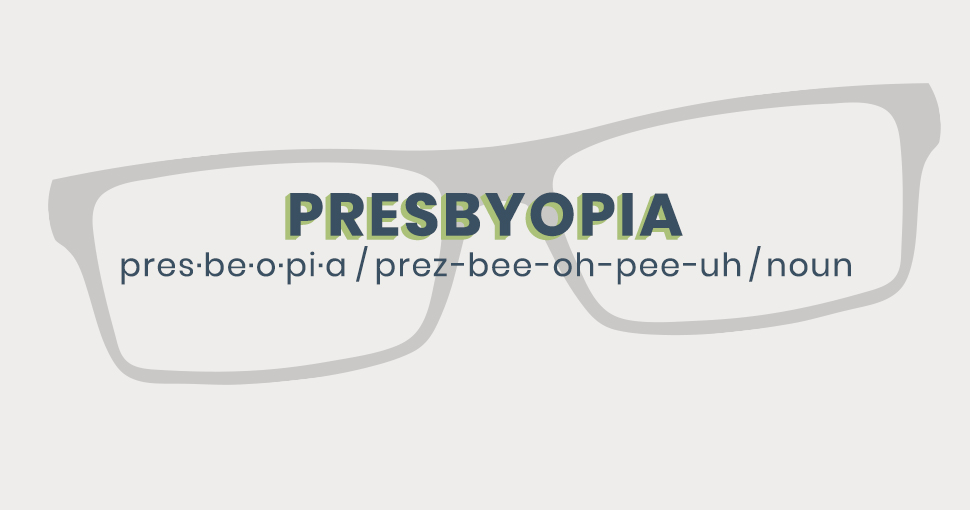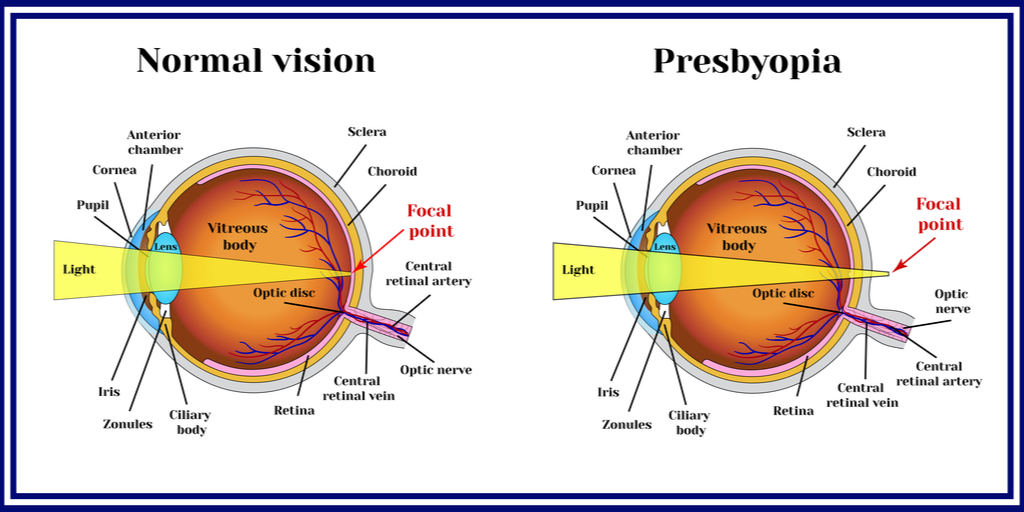What is Age-Related Near Vision Loss?

At some point in life – as early as your late 30’s or perhaps not until your 50’s – you may begin to hold your phone, a book, or a restaurant menu further from your face in an effort to see clearly. When you were younger maybe you noticed “older” people reaching for glasses before picking up the newspaper, studying a recipe, or reading a book. You probably never gave it too much thought, especially if you have enjoyed good vision for most of your life. Now you might realize two things: first of all that they weren’t actually old and secondly that you have an idea why they needed those “readers.”
Understanding Presbyopia – the Cause of Age-Related Near Vision Loss

The reason that reading and performing other up-close tasks becomes challenging for people in their late 30’s to early 40’s is a condition called presbyopia. The human eye consists of many parts that work together to allow us to see. The lens at the front of our eye focuses light onto the retina at the back of our eye. A soft, flexible lens allows for precise focus. Presbyopia occurs when the eye’s natural lens begins to stiffen and change shape. These changes render the lens less effective at focusing on up-close objects.

How Do I Know if I Have Presbyopia?
You should always consult your eye doctor about any changes in your vision. Your eye doctor can diagnose presbyopia during a comprehensive dilated eye exam. Symptoms of presbyopia include:

- Difficulty reading fine print or seeing small details
- Holding books, phones, or items further away in order to focus
- Headaches or eye strain after reading or performing up-close work

Can I Prevent Presbyopia
Presbyopia is a natural side-effect of aging and there is no way to prevent it. Everyone can eventually experience this loss of near vision, even if you are eating well and taking care of your eye health. You can relieve the eye strain that sometimes accompanies presbyopia by taking frequent short breaks from reading, computer work, or other up-close tasks. Talk to your eye doctor about presbyopia treatment options to improve your vision.

 Sources
Sources
1 National Eye Institute. Presbyopia Fact Sheet. https://nei.nih.gov/sites/default/files/health-pdfs/Presbyopia.pdf Accessed August 15, 2019.
2 Harvard Health Publishing. Presbyopia – What Is It? https://www.health.harvard.edu/a_to_z/presbyopia-a-to-z Published May, 2017. Accessed August 15, 2019




